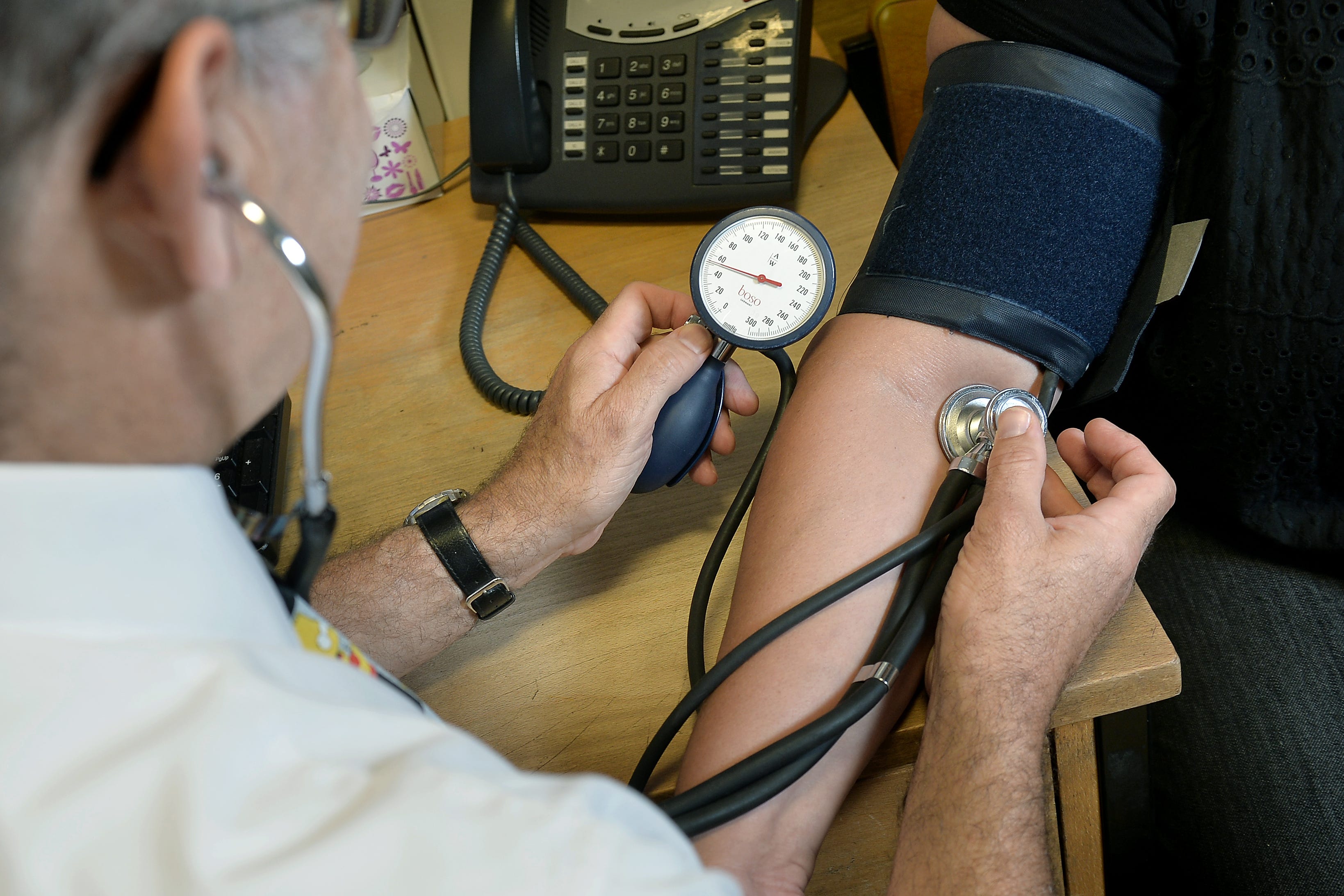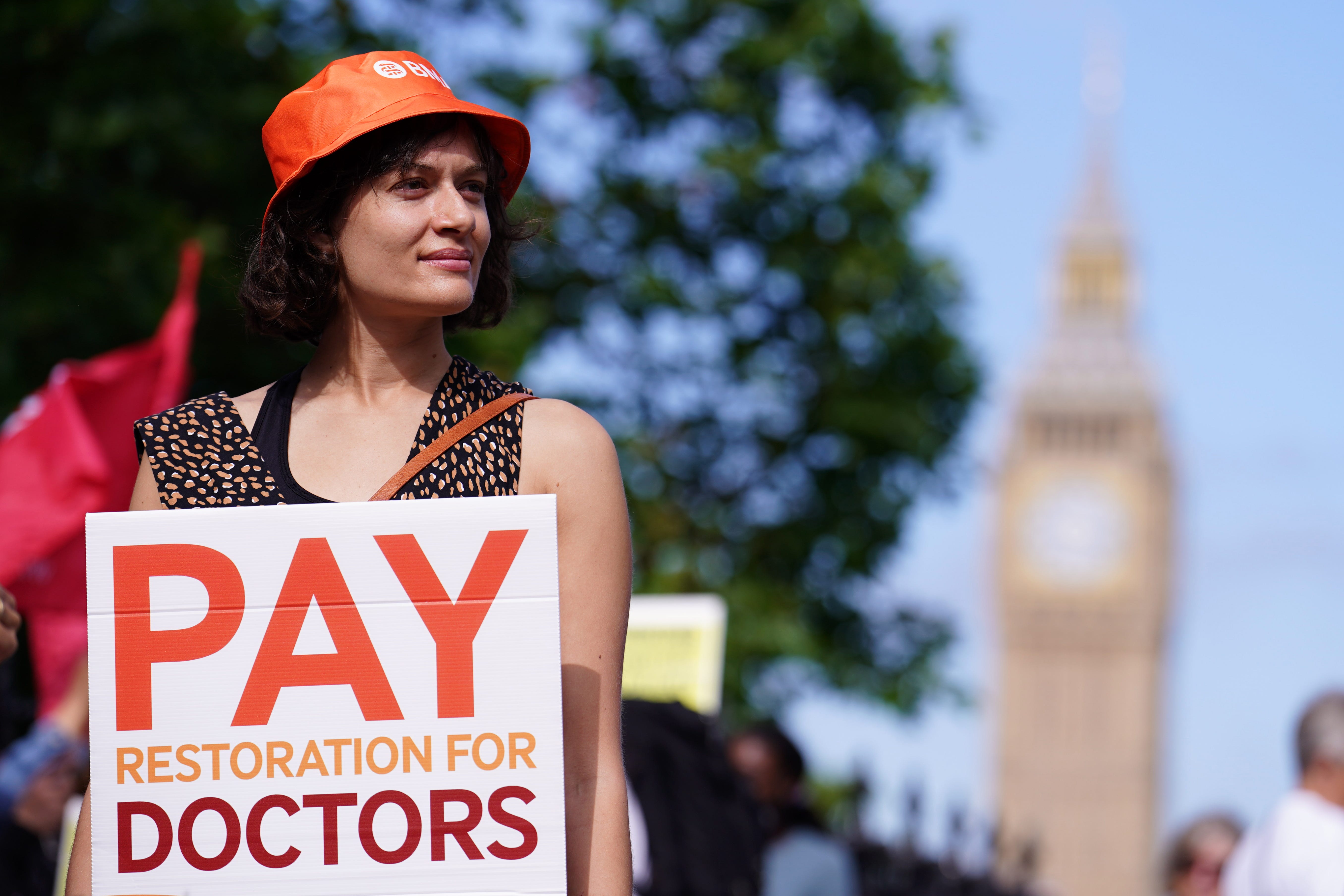GPs vote for collective industrial action for first time in 60 years
GPs were balloted on industrial action over a new contract which the BMA warns puts surgeries at risk

Your support helps us to tell the story
From reproductive rights to climate change to Big Tech, The Independent is on the ground when the story is developing. Whether it's investigating the financials of Elon Musk's pro-Trump PAC or producing our latest documentary, 'The A Word', which shines a light on the American women fighting for reproductive rights, we know how important it is to parse out the facts from the messaging.
At such a critical moment in US history, we need reporters on the ground. Your donation allows us to keep sending journalists to speak to both sides of the story.
The Independent is trusted by Americans across the entire political spectrum. And unlike many other quality news outlets, we choose not to lock Americans out of our reporting and analysis with paywalls. We believe quality journalism should be available to everyone, paid for by those who can afford it.
Your support makes all the difference.GPs across England have voted overwhelmingly in favour of unprecedented strike action which could last for months.
More than 8,500 GPs took part in a vote, the British Medical Association (BMA) said, with 98.3 per cent backing collective action.
Strike action will begin on Thursday and doctors have said it could last for “months”.
The row has come after GPs voted to reject a national contract which would have just given them a 2 per cent increase in salary and contract amount.
The British Medical Association (BMA) has given members a range of 10 options, including limiting the number of appointments to 25 per day. Currently, some report seeing 60-70 patients each day.
Options also include refusing to share patient data or referring patients directly to specialist care rather than following NHS processes.
Healthcare leaders and experts the action will be “catastrophic” for the NHS, while experts at think tank The King’s Fund warned the strikes will “hit patients hard.”
Dr Katie Bramall-Stainer, chairwoman of the BMA’s England General Practitioners Committee, told the PA news agency earlier this week that the action could bring the NHS to a “standstill very quickly” – though medics have said they do not want to make patients “piggy in the middle” and are directing the action at NHS England and the Department of Health and Social Care.
This is the first time in 60 years that GPs have collectively voted for industrial action, although some participated in the 2012 doctors’ strikes.

A formal dispute was launched in April, with the BMA saying the new GP contract, which will see services given a 1.9% funding increase for 2024/25, means many surgeries will struggle to stay financially viable. A referendum carried out by the BMA found 99 per cent of 19,000 GPs rejected the contract.
The BMA said the actions which can be taken by GPs will be “easy, safe and sustainable.”
It added: “Above all they will turn up the pressure on the government to do the right thing for general practice and patients. We need a new contract that is fit for purpose, one that provides the investment and workforce needed to reset general practice and provide patients with family doctors.
“We have had several meetings with the new secretary of state and shared our vision for the future of general practice. We remain open to continuing discussions, to ensure GPs secure the contract that patients and staff deserve. ”
NHS England has urged patients to continue to come forward for their care despite the strikes as practices are still required to be open between 8:00 and 18:30 Monday to Friday as part of their contractual agreements.
The BMA’s list of ten actions has been designed so that GPs are not in breach of contract.
Matthew Taylor, chief executive of the NHS Confederation, which represents NHS hospitals and community services said: “It is disappointing that GPs have had to take these drastic steps to secure a fair funding deal.
“While we recognise this year’s contract has given some additional flexibilities, the 1.9 per cent pay uplift and subsequent Doctors and Dentists Remuneration Body recommendation of 6 per cent falls short of what is needed for a sector that is trying to cope with significantly increasing demand and decreasing income.
“Finding a way to avoid collective action must be a top priority for the government and the BMA.
“Those actions that will have a direct impact on patient care such as limiting the number of appointments could also have a catastrophic effect on the entire healthcare system.”
This article was amended on 2 August 2024. It originally referred to the first industrial action from GPs in 60 years, but that was inaccurate. A proportion of GPs took part in industrial action in 2012
Join our commenting forum
Join thought-provoking conversations, follow other Independent readers and see their replies
Comments